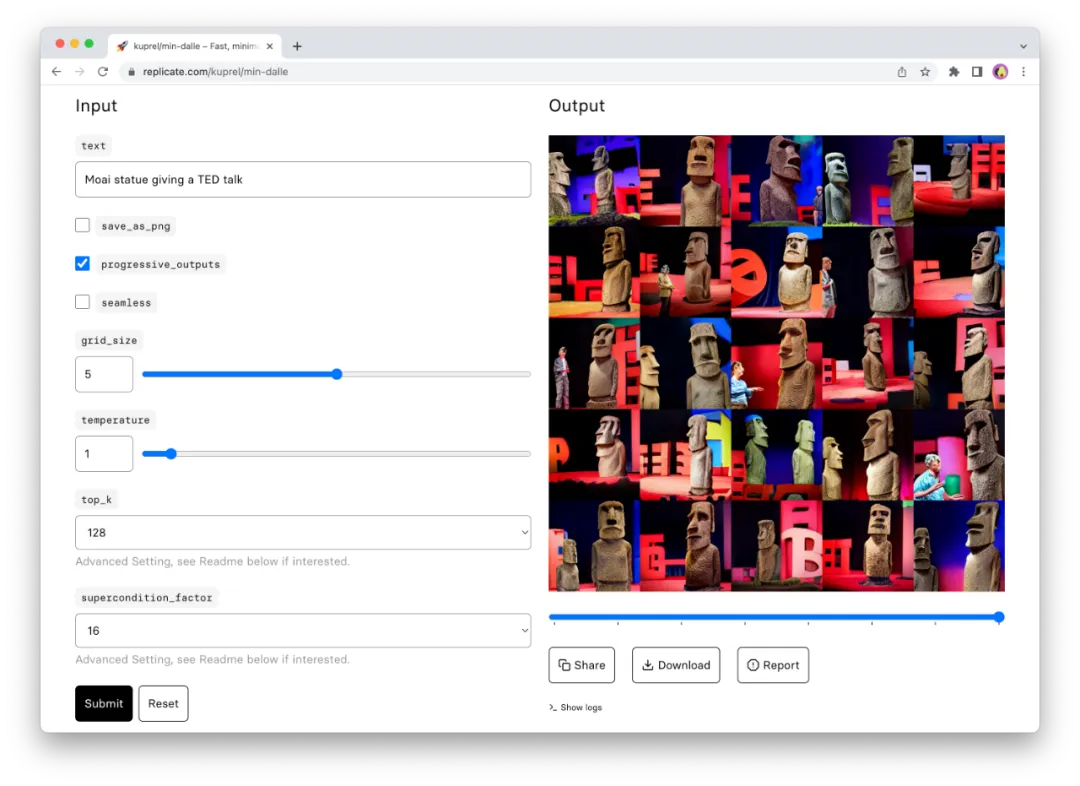

Replicate is a cloud-based machine learning platform. It enables users to directly run machine learning models using cloud APIs, eliminating the need to understand complex machine learning model architectures.
In Python or Jupyter Notebook, allows users to run models and deploy and optimize models in the cloud. You can use it to run open source models published by others, or you can package and publish your own models. With Replicate, you can generate images, run and optimize open source models, and deploy custom models with just one line of code. By calling Replicate's API in Python code, you can run the model on Replicate and obtain the model's prediction results.
Whenever you run a model, you are creating a model prediction. Model prediction is the process of using an established model to predict new data. In model prediction, we use an already trained model to predict the outcome of unknown data. This process can be completed by inputting new data into the model and getting the output of the model.
Some models run very fast and can return results within milliseconds. Other models take longer to run, especially generative models, such as models that generate images based on text prompts.
To check the status of predictions, you need to query the API and poll based on these patterns of long operation times. Pattern predictions can have various states.
Once logged in, you can view a list of predictions on the dashboard with a summary of status, runtime, etc.:

You can run the model on Replicate using the cloud API or a web browser. The web page can directly display all inputs and generate a form, and the model can be run directly from the browser, as shown below:

Web pages are great for understanding models, but when you’re ready to deploy the model into a chatbot, website, or mobile app, APIs come into play.
Replicate’s HTTP API can be used with any programming language, and there are client libraries for Python, JavaScript and other languages to make the use of the API more convenient.
Using the Python client, you can create model predictions with just a few lines of code. First install the Python library:
pip install replicate
Authenticate by setting the token in the environment variable:
export REPLICATE_API_TOKEN=<paste-your-token-here></paste-your-token-here>
You can then run any open source model on Replicate from Python code. The following example runs stability-ai/stable-diffusion:
import replicateoutput = replicate.run("stability-ai/sdxl:39ed52f2a78e934b3ba6e2a89f5b1c712de7dfea535525255b1aa35c5565e08b",input={"prompt": "An astronaut riding a rainbow unicorn, cinematic, dramatic"})# ['https://replicate.delivery/pbxt/VJyWBjIYgqqCCBEhpkCqdevTgAJbl4fg62aO4o9A0x85CgNSA/out-0.png']
The above is the detailed content of Play with large models! One-click deployment with Replicate. For more information, please follow other related articles on the PHP Chinese website!




